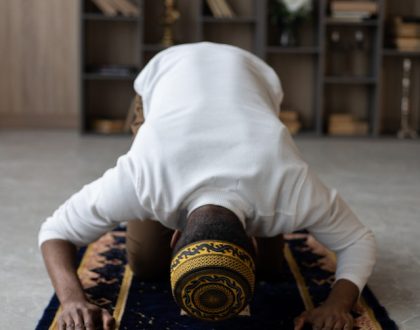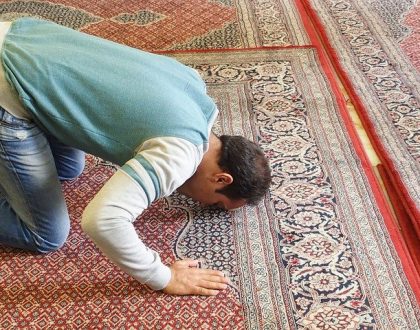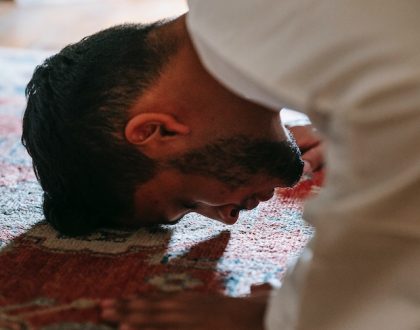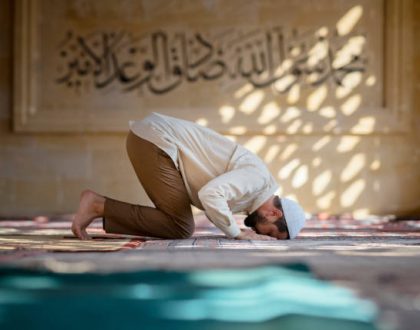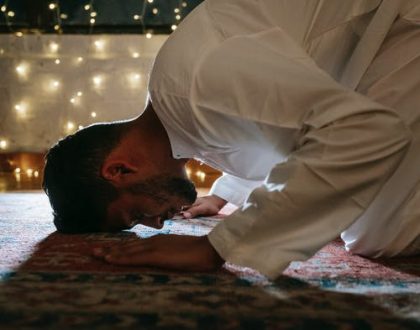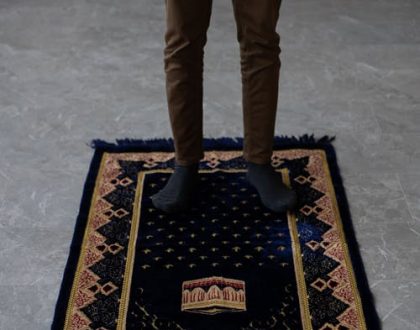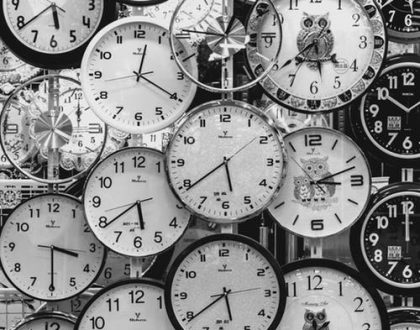How do I perform salatul tasbih?
What is Salatul Tasbih? It is a voluntary 4 rakahs salah which is called Salatul Tasbih because it entails reciting 300 times tasbih in various positions during the salah. Is the Salatul Tasbih a...
Read More
Salah is your imaan-charger
Salah energises us, rejuvenates us, empowers us to face the tests we go through every day. This is why we have five prayers, not just one: because we face continuous tests all day, from...
Read More
Can I pray out loud so my baby can hear me?
You can pray audibly for Fajr, Maghrib and Isha, but not Dhur and Asr which are not vocalised. Shaykh Haytham Tamim
Read More
The first thing you will be asked about is your Salah
We are living in uncertain times. We have witnessed huge losses of life worldwide, through the pandemic and world disasters, and personally we have all experienced the death of close family and friends. None...
Read More
If my clothes are impure and I can’t change them, should I miss salah or not?
Is it permissible to pray in impure clothes out of necessity (such as the clothes on which urine has fallen), if one cannot change one’s clothes and will end up missing the salah? Salah...
Read More
Why did Allah originally command 50 prayers before reducing it to 5 prayers?
Anas ibn Malik reported: Fifty prayers were obligated upon the Prophet, peace and blessings be upon him, when he was taken on his night journey. Then, it was reduced until it was set at...
Read More
Can you combine salah?
The default position is to pray at the prescribed time. This is because Allah commanded us to pray at designated times. He did not say that we could pray all our salah for one...
Read More
Ghazali on how to bring light to your heart. Tips on following the Sunnah
We are still reading from the book of Imam Ghazali Kitaab Al-Arba’in Fi Usul ad-Din, The Forty Principles of the Religion, which is a summary of his great work, Ihya Ulum ad-Din. In...
Read More
Do you have to make up missed salah (qada salah)?
The obligation of salah Praying at the specified time is obligatory for all sane Muslims over the age of puberty. Verily, As Salaah (the prayer) is enjoined on the believers at fixed hours. (Surah...
Read More
What are the pillars of salah?
Salah has pillars (arkan) which are essential components. If any of these are missing, then the salah must be repeated. Salah also has obligatory components (wajib parts), however if these are missed, they can...
Read More
Is it permissible to pray tarawih online?
Praying tarawih in your home while following an imam who is performing the tarawih prayer online is a relatively new phenomenon, which was adopted by some imams, including myself during the unprecedented global pandemic...
Read More
How do you perform the witr prayer?
The Witr Guide What is the correct way to pray witr? When should it be prayed? And what should you recite? There are differences in the schools of thought on this matter, based on...
Read More
Should I recite the Fatiha behind the imam in congregation?
There are different opinions and evidences in the four schools of thought. 1. Hanafi: Do not recite the Fatiha in any congregational prayer According to the Hanafi school of thought, you do not recite...
Read More
Fix your salah
Total connectivity to Allah During one moonlit night, there was an extraordinary episode, when Abbad bin Bishr, one of companions guarding an army of believers was praying as they slept. Through the darkness a...
Read More
The concept of gradualism – how Islamic rulings were phased in when the time was right.
The Concept of Gradualism Tadarruj or gradualism is the introduction of a concept over a period of time so that it is not overwhelming in the first instance. Though we have all the rulings...
Read More

